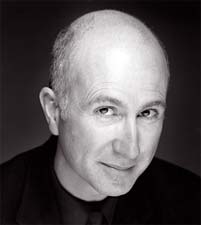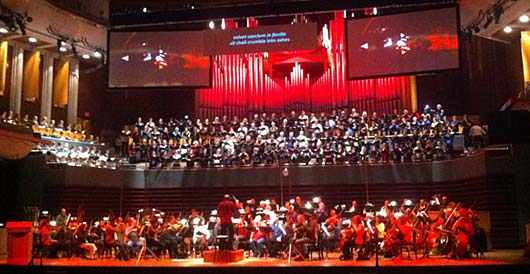Excerpt from Oscar of Between, Part 4
by
Betsy Warland
Time is everything. With everything.
The difference between: The First Time; The Last Time.
And between? “Time will tell.”
Virginia journaling about her nascent sense of writing Mrs Dalloway, how the “life of a woman” …might be told with almost “one incident – say the fall of a flower … my theory being that the actual event practically does not exist – nor time either.”
Stein writing narratives outside of time.
Einstein’s world-shattering Relativity.
Cubist conflation of times/place.
Time as the DNA of all interacting elements – apparent & not – at any given time?
Oscar back in London 11 months later. How one picks up where one left off as if. Almost as though there had been no gap in. Time. Almost as though it had been a few days since she saw Shaun. Saradha. Though much has transpired much now becomes unstuck from linear time. Bits of much surfacing unpredictably here & there in response to this here, here. And now. A kind of series of convergences and reconfiguring that makes Oscar giddy: narrative briefly on the loose.
Oscar having just dropped her beret amidst rushing feet while standing in vain effort “out of the way” searching for notebook in which she wrote down which platform to meet Shaun on but one does not stop in London, nor stand still, one moves, quickly, sits only rarely when one can snag a seat. Since her arrival two days ago Oscar clumsy not so much jet lag as different bodies in different space each place having its own kind of fluency. Vancouver stride all angle & awkward here amidst Londoners’ rushing sidestep. Then her name is called out: it’s Shaun. And Thomas. Hugs. Writers’ wharfing. Then off to fetch food for the train at Marks and Sparks outlet; then Saradha at Arrivals & Departures Board. Hugs. A force field gathering among them. Shaun’s name called out – it’s Pascal on his way to our retreat: introductions. Then Saradha notices “On Time” suddenly changes to “Cancelled.” Consternation. “What?” Speculations. Then the announcement: “We apologize for any inconvenience … due to a fatality on the tracks … all trains arriving and departing Paddington Station are cancelled for two to three hours.” The five of us casting about; considering options while Shaun is on his mobile notifying retreat staff, students on way to meet us in Exeter, taxi booked to drive us from Exeter to Totliegh Barton. Londoners familiar with transit closures, breakdown, cancellations. We decide: tube to Waterloo Station for train to Reading; transfer there. Just make it. In time. Stops at every; after first two stops Shaun gets off train feeling ill – somehow will find a taxi to take him to Reading. Underlying sensation of mass fleeing. At Reading: no Shaun. Platforms rapidly filling up; no train to Exeter on Arrivals & Departure’s Board. Then announcement: “We apologize for any inconvenience caused in your trip but due to a fatality …” no, not the same but another – this time on the line between Leeds and London. Thin tissue of civility damning mounting panic. Odd intimacy between these two suicides set in motion with us hundreds of thousands distressed commuters stopped in our tracks. These two we will never know any detail about other than the impact of their despair. Thomas comments they can determine difference between jump & push: those pushed arc further over the track; those that jump land square in the middle of. Saradha saying “February is suicide month,” Shaun arrives! I find a spot for him to sit and give him Reiki: “Is it helping?” “Yeh, it’s comforting.” The announcement “apologize for any inconvenience … due to a fatality …” repeats every few minutes intensifying anxiety. Then Saradha sees a train to Exeter has just been posted; we scramble to the platform. It immediately fills to brim. Shaun & I, finding a spot standing in front of luggage shelves, constantly subjected to a stream of people squeezing by our backsides as they board and exit, us gradually noting how people select different parts of their bodies to rub against ours as they pass. Others are crammed into the exiting & entering end of our train car. A camaraderie soon erupting among the clutch jammed in there who make light of. Hilarity crescendos in the face of near chaos. Antidote to collective panic. Skill developed in & between air raids generationally passed down. Oscar buoyed by this resiliency yet aching for the two dead; sobered too by our rampant reliance on efficiency – how it makes us so helpless – how a few moments brings us to near brink of collective collapse.

Guest Composer:
Jeffrey Ryan
Vancouver, BC
https://www.jeffreyryan.com/
Afghanistan: Requiem for a Generation
Listen to the CBC broadcast at Concerts On Demand.
(Tracks are on the right and one can start at the beginning or jump to any movement.)See also Suzanne Steele’s, a Listener’s Guide to Afghanistan: Requiem for a Generation.
Early in 2011, I was commissioned by the Calgary Philharmonic Orchestra to compose an hour-long requiem. Not only was this the largest commission in the Calgary Philharmonic’s history, it was also twice the length of any piece I’d ever written. It would require every bit of experience I had accumulated, and more.

Afghanistan: Requiem for a Generation brought me together with poet SMS Steele. Suzanne, as Canada’s first War Poet, had spent several months in Afghanistan, witnessing and writing about her experiences with the 1st Battalion Princess Patricia’s Canadian Light Infantry.
Normally I hear all the sounds in my head when composing, figure out what is making them, and write it all down at once. But for the Requiem, I had to adapt. The singers would need their music weeks in advance of the orchestral players. I had to imagine the orchestral music, make it fit onto a piano for the singers to rehearse with, then expand the piano music back to orchestra.
Though with an instrumental piece I start from scratch, one advantage in setting text is that some of the musical decisions are already made by the words. The sounds, the colours, the textures, the dramatic structure: all flow from the words. Of course, the implication is that in the creation process, the words come first. Yet not every great poem makes for great music. So it was a great gift to be able to collaborate with a living poet from the beginning of the project.
Suzanne was deeply and passionately connected to these stories. The traditional Latin Catholic Requiem Mass provided the scaffold, upon which Suzanne laid a post-religious journey through the stages of grief. It fell to me to say dispassionate things like “this is too short”, “this is perfect”, “this needs to be tenor not soprano”, and “the children’s choir will not sing in eight of the nine movements”.
Waiting for Suzanne’s text to be completed meant the composition period would be very short. There would be no time to later rewrite words that would also, then, require rewriting music. By helping to shape the text, I was already inspired musically by Suzanne’s words, and I could consult her regarding any specific sounds she imagined. So, when I finally sat down with pencil and staff paper, I already knew the emotional intent, subtext, style and structure of the work.
Traditionally in Latin Requiem settings, the long Dies Irae (Day of Wrath) text ushers in “war music”. Our Dies Irae is certainly war music, but because we use very little of the Latin text, it’s short and tense. A soldier has been critically injured by an Improvised Explosive Device and is being airlifted to emergency care. After a build-up in the orchestra that starts in slow motion and gradually speeds up to real time, all the singers enter. The text is comprised of words that the injured soldier would hear in the helicopter: “T triple-C”, “9-line”, “tourniquet”, “breathe!”. The fragmented text allowed me to build a multi-layered texture of overlapping sounds. The music is fast, rhythmic, urgent yet focused and deliberate in that way emergency personnel must have. Suzanne’s idea was to bury “S.O.S.” in Morse code in the music and it’s there first in the clarinets. As the music progresses and the urgency rises, the S.O.S. motif-as-heart-monitor rises in pitch, one step at a time, until the climactic moment when it becomes one long, flat-lined tone.
The November 10, 2012 world premiere proved to be an unforgettable evening. Roberto Minczuk led 270 musicians on stage: the Calgary Philharmonic Orchestra and Chorus, the Cantaré Children’s Choir, and a cast of four outstanding soloists performed Afghanistan: Requiem for a Generation to a packed house.
What an intense creation period: exhausting, elating and worth it.





So much to talk about here, but like Betsy, I want to start off with time. Since our guest contributor Jeff Ryan is a composer, it’s got me thinking about how poets and composers use time. It’s certainly integral to a musical composition: measures and time signatures and half notes and whole notes.
4/4 common time.
2/2 cut time.
3/4 time-simple time (a waltz?)
3/10 time-irrational time.
How does this intricate framework function once you’ve established it? Can it bend? Can common time be cut short? Spiral down into irrational time, and then recover itself in time for the finale? Does time guide (but also limit) your decisions the way we are confined by the framework of a sonnet? For some poets,the enforced structure of a sonnet frees their creativity, for others-nothing but frustration.
I’ll admit, my memory of musical time is confined to the crushing regularity of the metronome, and two stubby hands that kept betraying me. Maybe I should have practiced more?
(oh, and! there’s also 9/8 time, the notation for the haunting Irish slip jig, a bumping/bouncing rhythm that makes up its own rules and (ha!) follows its own drummer/dancing/heart/beat. Like “The Butterfly,” it flutters and floats and zigs and zags with its own logic. here’s just one of many: http://www.youtube.com/watch?v=cNqqsAo48hQ)
So this:
If timing and rhythm is innate in us:
the iambic pentameter of heartbeat, the cadence of breath
what does it mean to slip
into these jigged/jagged rhythms?
To slip out
of time, out
of ourselves,
& in, perhaps, to other possible habits/movements/events
that last as long as each dance, each song.
Only just
to try. To escape
that daily metronome,
a vacation that makes return
to routine/relief.
I once had/was diagnosed with four different heartbeats.
Irregularities. Syncopations that at once jolted,
slipped, took my breath I
couldn’t speak
couldn’t sing didn’t know the next
beat had to wait to catch
up catch breath
(I am still terrible at clapping along).
It was a broken
heart literally broken by
its (own) rhythmic intrigue—
Sync cope a shun: the process of learning to catch up with oneself in order to let go of what steps on your toes.
Once you’re there, you’re already
ahead.
(hurry up please it’s time)
Time
traveller:
finding your wings zigged/zagged.
This flutter started
in the same place
tomorrow.
What prompted me to post is the sense of unbraiding time in both pieces of writing. Love this. Mostly because it matches my own experience of space and its relationship to time as one moves in the world.
I have occasional neurological episodes in which I experience various combinations of sensory conflations, but time fracturings. Think of it as a piece of music in which more two or more times are operating simultaneously, and “c” is both a sound and a yellow rip in the fabric of air. In an episode, one part of my body progresses toward the future at a different rate than another part of my body. It makes me feel as if I understand Relativity in a somatic sense. In the middle of movement, say walking down Main Street, I can feel as if my left arm is cycling through the shoulder slightly further in the past than my right hand, swinging up into the future as it is. I feel smeared out over space-time. Also, I’m hearing/seeing these movements as well as feeling them distended across the various forms of here-now.
I do wonder how much of the lasting impact of music and poetry is not to entrain emotion – to make us feel happy/better – but to de-rail patterns of feeling, to push us out of the illusion of the tightly-braided, coherent self and allow us to experience the various streams of sensation ongoing at all times.
An interesting topic. I love what you posted Besty. Like many people, I am fascinated by how shifts in geography or personal circumstance can shift one’s experience and perception of the passing of minutes. I have in the past marvelled at how a change in personal energy from positive to negative can shift time, how depression can change the experience of time, slow it down, while joy can speed it up. How busy people have no control over how fast time seems to be moving and at the same time, are obssessed with time, blocking out their days in intervals trying to harness it like a wild river and how when you’re involved in a passion, time is non existent, the best kind of time, un time.
And why does our perception of time seem to arrive in slow motion during an accident or tragedy as it’s unfolding as sometimes heard from those after the fact. What is that? My mother used to tell me, just you wait, time speeds up when you get older and I thought that was ridiculous, how could that be, but now I know what she meant. I feel like my 40s unfolded in the blink of an eye and in some ways as a result, experiencing mood swings, can be a blessing, can slow everything down for a better look, introspection, conscious seeking of clarity in a world the places the highest value on doing and doing and doing.
In the last days I’ve found myself thinking about these 2 pieces and wondering about the movement of words into music. When Ryan speaks to his pulling apart the normal composing process and breaking the music into pieces so that the singers could have their parts in advance of the orchestra, it made me think about the steps in the process of turning words (whether prose or poetry) into song. It seems obvious that there would be natural stages to such a transmutation. Identifying the bodily rhythms in the way the words interact I imagine as a first step. Then codifying those rhythms into musical forms musicians work with when they play together. I imagine at least 5 steps, and perhaps melody doesn’t come into the process until step 4 or so. Not sure since I’ve never done this.
Part of my wondering comes from the deeply rhythmical structure of Betsy’s excerpt, particularly the section that mimics the shunting train, and the feelings of dislocation, disruption that the 5 characters experience as they finally move toward their destination.
How possible would it be to articulate the steps of turning this excerpt into song? What would it sound like? What sounds does it conjure up for readers? Does it make a difference what our various levels of musical experience might be? Where as a Latin Requiem was the “found” form for Ryan’s collaboration, what would the form be for Oscar?
Knowing that form, wouldn’t it say something important about the question of identity posed by these Oscar texts?
I am delighting (and reeling a bit too!) from all your thoughts and riffs on time, space, body, words, music etc. and inspired to do some riffing along with you – thinking of time as location (our attempt to articulate who we are at any given time).
Also thinking of movement and time and how they move differently in written words, spoken words, songs and sign language even when the words “are the same.” In singing, particularly jazz, how a singer’s distinct sense of phrasing can make an old song suddenly surprise you with different meaning or emotional subtext. Nonlinear time is closer to how my mind, emotions and body actually move and the very form of Oscar and its erratic interfacing narratives that I’m writing over a considerable span of time endlessly intrigues me as do each Guest Writer and Artist posts.
With Oscar Salon comments, time is pulsating and porous as yours’ & Oscar’s thoughts & specs of stories waft in & out & circulate about: a kind of writing in the act of!